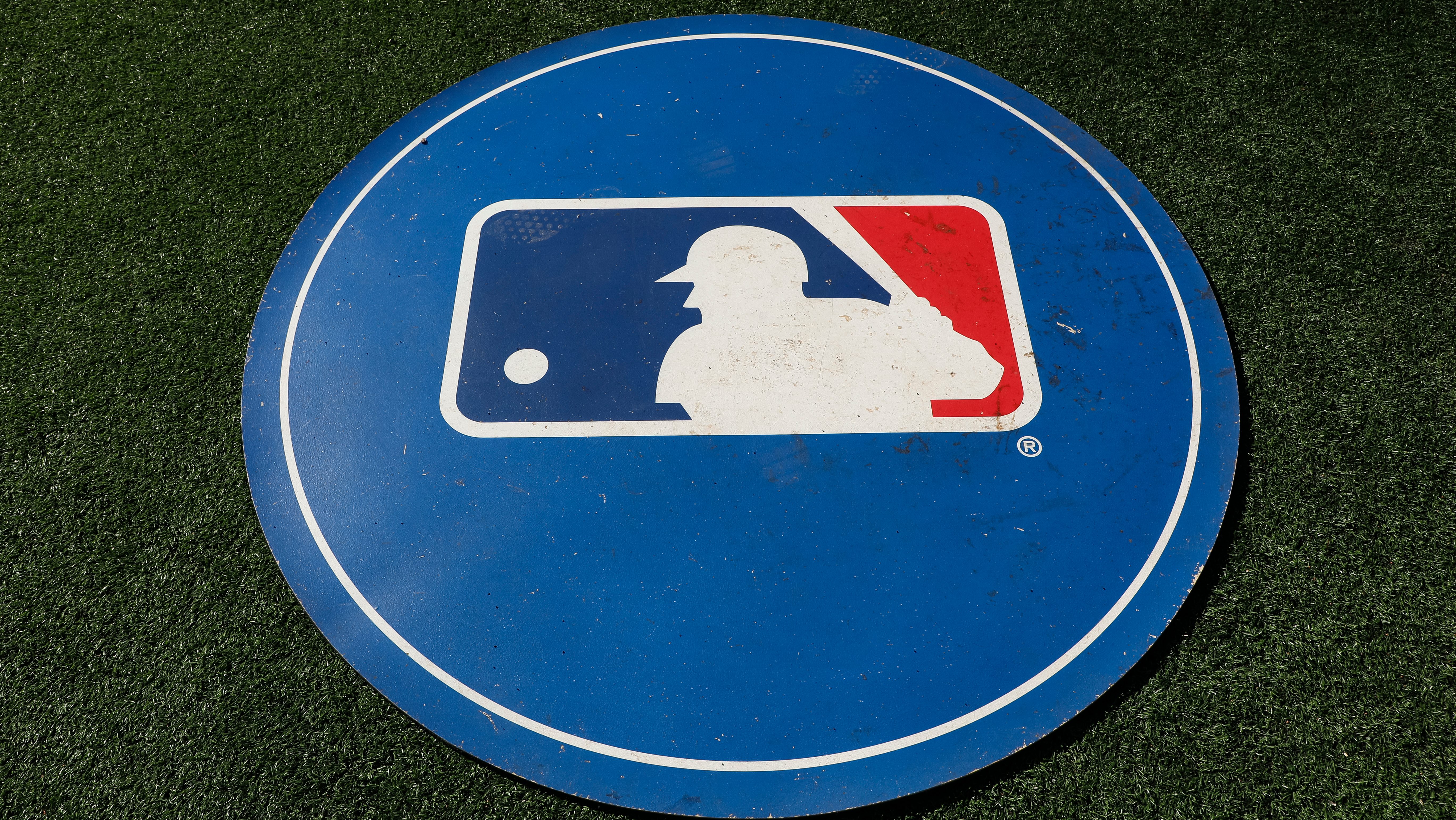Everything David Bote touches turns to gold lately.
After not finding his name in the lineup Tuesday during the Cubs' 7-0 loss at the hands of the Brewers, Bote was back in there Wednesday afternoon, hitting in the three-hole.
He immediately made his presence known, singling in the first inning and later scoring on Anthony Rizzo's two-run dinger.
From there, Bote made a terrific barehand play to nab Lorenzo Cain at first base, scored on a wild pitch that bounced only a few feet away from home plate and then later singled on a bloop to center that no Brewer could catch.
Before Wednesday and even before he etched his name into baseball history with the best moment of the 2018 Major League Baseball season Sunday night, talk had already begun about his long-term fit with the Cubs.
Joe Maddon has discussed getting Bote some reps in the outfield next spring training in an effort to utilize his athleticism everywhere beyond just the infield. Fans and media alike have started to discuss the former 18th-round pick as a piece of the Cubs' core.
But in keeping the focus only on the rest of this season, Bote is emerging as a key piece to this team during the stretch run and possibly into the playoffs, as well.
MLB
People have been waiting for the Bote bubble to burst for a while now, but the kid keeps right on hitting as he approaches his 100th MLB plate appearance.
Why?
His mental process and ability to make adjustments might have something to do with his ability to stick around.
In the first two games of the Nationals series last weekend, Bote drew a pair of starts and went just 1-for-7 with three strikeouts. At first, the Washington pitchers went up in the zone Friday before spending Saturday afternoon pounding Bote's potential weakness low and in.
He saw that, recognized it and was ready for more of the same Sunday night. And we all know how that ended.
"[Saturday], they got me a lot with the two-seam sinkers down and in all game," Bote said. "I knew [Washington closer Ryan] Madson had the sinker, I knew he had the four-seamer and I had to pick one. Today, I was like, 'You know, I'm not gonna get beat down there today.'
"... I was like, 'Just get it in the air.' That was my thing — hit it as hard as I can to center field and get underneath it. That was my approach."
The rest is history, with Bote willing the Cubs to a badly-needed victory on an ultimate grand slam.
Exit velocity and launch angle are nice and all, but it's those types of adjustments that keep hitters around in the big leagues for good.
Bote recently talked to NBC Sports Chicago's Kelly Crull at length about his approach Sunday night and in general:
"We have this conversation with our hitting coaches — you have a plan, you stick to the plan and if they make the adjustment differently and they would've thrown a high fastball and they would've gotten me out there and I would've struck out, I could've lived with that," Bote said. "So that's where the really hard part comes in.
"You have a plan, you execute that plan and it doesn't work out, you can't get frustrated. Yeah, you're upset that it didn't work out or you didn't get the job done, but you can go home thinking, 'OK, I had my plan, I stuck to it and it didn't work out this time.'
"And so that's where I think the really tough part is is to being disciplined to accept the failure of it. 'Cause there's been times where i went 0-for-4 with two Ks and I was like, 'Hey, I had my plan, I stuck to my plan and it just didn't work out today.'
"So being able to have that mindset so it doesn't snowball — 'Oh, I gotta push a panic button or switch it or I should've had the wrong plan.' But to have the plan, make sure, OK, it was the right plan. I was OK with that. I stuck to it the whole time and I didn't get it done, OK.
"Oh, I did get it done instead of being in-between and, 'Oh, was I halfway between up and halfway between down?' Or, 'Was I halfway between pitches?' Then you get frustrated because you're like, 'Oh I wasn't disciplined enough to stick to it!'"
As Bote has become a household name around baseball this year — and especially over the last couple weeks — the Cubs have talked often about how strong the 25-year-old rookie is mentally.
He didn't start Sunday's game, but stayed focused throughout, drawing on his experiences as a pinch-hitter throughout six minor league seasons and talking to Tommy La Stella on the bench to fine-tune that approach.
Bote went to take flips in the sixth inning Sunday while Max Scherzer was stifling the Cubs offense, but didn't spend much time on the physical process. For him, the mental aspect was the priority.
"I went down, took three swings with flips and I was like, 'You know, I like where I'm at,'" Bote said. "I liked the feel, I liked what I was seeing, I liked how I was feeling and I shut it down and then just went back out [to the dugout]."
Bote believes he's been able to sustain this level of success because he won't get too caught up in the highs or lows, instead choosing to keep his head "under water," as Cubs assistant hitting coach Andy Haines suggested to him. Meaning: Don't let the outside noise impact what's going on inside his own head.
In a way, Bote foreshadowed his ninth-inning heroics in a conversation earlier this month about how the Cubs' mental skills department has helped him get to this point:
"Just really honing in on being present and focus your breath and being able to control the things you can control and practicing mindfulness and being able to catch your mind drifting and bring it back," he said. "All sorts of incredible skills to practice so that when you are in there with the game on the line in the ninth inning, you're not overwhelmed by the situation because you've practiced to get back to where you need to be on this pitch.
"Not worried about what the story is around. Everybody wants to add a story to a thought. But if you could just have a thought for that thought and not put a story to it — like, 'This is a 2-0 fastball, if I hit a homer, we tie the game.'
"It's more — 'This is the pitch I'm looking for and I'm gonna put my best swing on it and I'm gonna let whatever happens, happen. And that way, you can stay centered in to what you have to do on that pitch."


